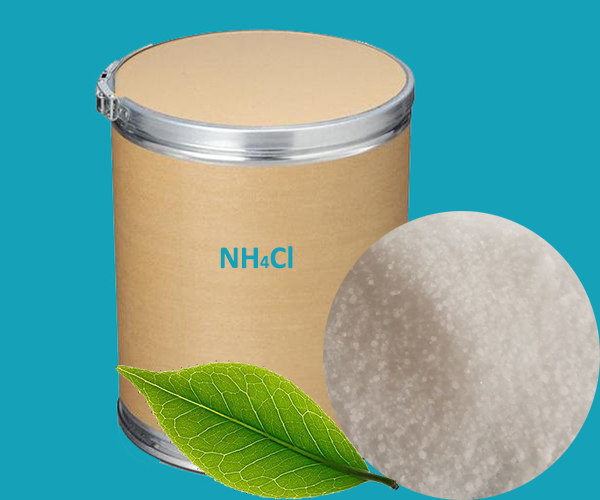Ammonium Chloride is an inorganic compound with the chemical formula NH4Cl. It is also known as sal ammoniac, the salt of ammonia and hydrogen chloride.
Ammonium chloride is a by-product of sodium carbonate. Ammonium chloride has diuretic and expectorant effects. In its pure form, it is crystalline salt, white. This compound is highly water-soluble and mildly acidic. Ammonium chloride is used in veterinary medicine for the prevention of urinary stones in sheep, goats, and cattle. When ammonium sulfate and NaCl solutions react, NH4Cl is produced. When a 5% solution of ammonium chloride (by weight) is mixed with water, the resulting solution has a pH value ranging from 4.6 to 6.0.
Properties of Ammonium Chloride
Chemical Formula : NH4Cl
Molecular Weight/ Molar Mass : 53.491 g/mol
Density : 1.53 g/cm³
Boiling Point : 520 °C
Melting Point : 338 °C
Uses of Ammonium Chloride
It is used in fertilizers as a nitrogen source.
It is used in medicine (especially in cough medicine) as an expectorant.
It is used in glue which helps to bond plywood.
It is used in Leclanche cells in aqueous solutions.
It is used in food additives – in bread making as a yeast nutrient.
It is used as an acidifier.
It is used in cooling baths to create low temperatures.
They are used as buffer solutions along with ammonia.
It is given to cattle as feed supplements.
 English
English Español
Español Português
Português Français
Français Deutsch
Deutsch Русский
Русский 中文
中文 日本語
日本語
